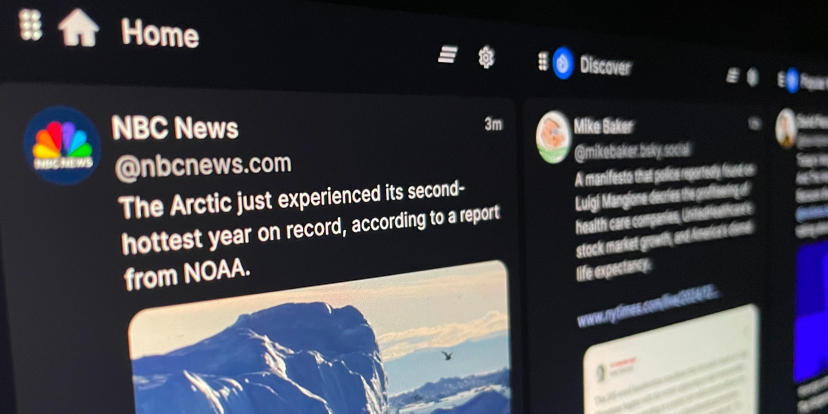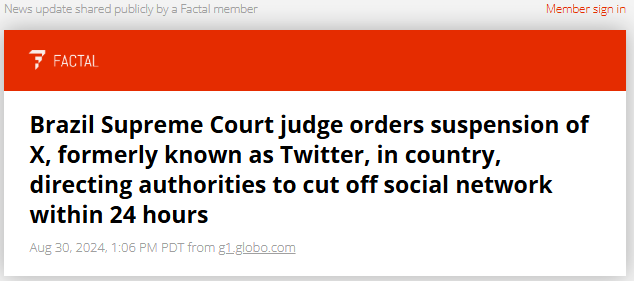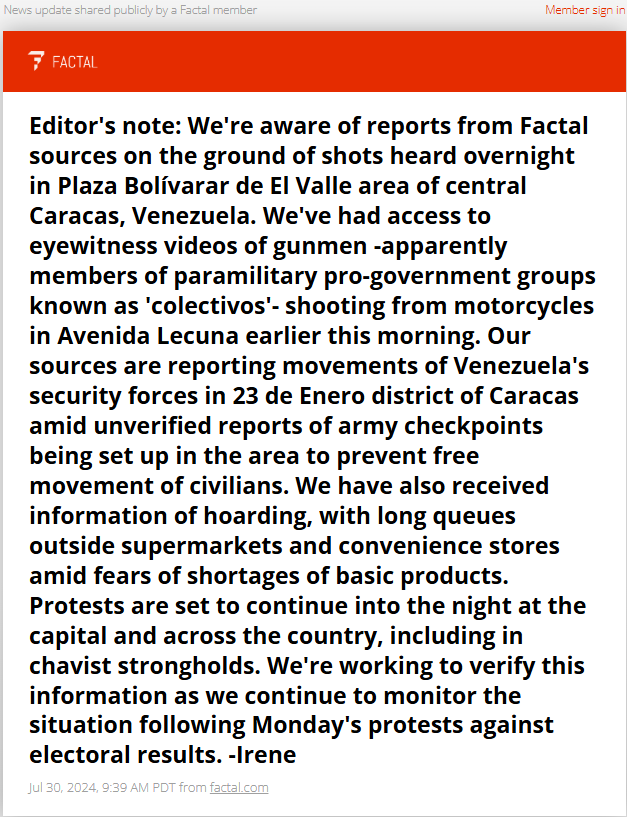The realignment of social media was a big trend in 2024, and it will continue to have an impact in the years ahead for risk intelligence professionals. Sources have splintered across a wider range of social platforms, and finding and verifying real-time information can be more challenging than ever.
The headline late this year was the rise of Bluesky, which by November had attracted 24 million users, including a lot of journalists, who were looking for an alternative. It’s slowly becoming something of a second home for news and live events, and it has potential to become a top tier breaking news platform alongside X and Telegram.
“Some people have been disenfranchised with Twitter/X or frustrated with Meta’s Threads,” says Cory Bergman, co-Founder of Factal, a breaking news technology company that specializes in digital news-gathering for risk intelligence members. “As Bluesky builds a critical mass of journalists, then the platform will also attract public safety and politician accounts who want to reach those journalists – much like Twitter did in the early days.”
This realignment is in part due to the rapidly intensifying politicization of social media. While video-based platforms like Tik-Tok and Instagram still enjoy broad audiences with their focus on entertainment and algorithmic feeds, text-based platforms are balkanizing.
“Much like cable TV news in the 2000s, text-based social platforms are becoming ideologically segmented. X has made a shift to the right, which has sent many left-leaning users to Bluesky and Threads,” Bergman says.
While Threads grew quickly last year, Bluesky’s recent growth has been turbocharged by a couple of big catalysts. First, in Brazil, one of X’s largest markets, the supreme court banned the site outright. Within hours of the gavel falling, millions of accounts went dark. Literally overnight, these users were driven to new places like Bluesky.
“It was a fascinating exodus to watch, as clusters of users attempted to move together to preserve their networks. It showed that people will self-organize and move right away if they have to,” says Bergman.
Second, the 2024 U.S. presidential election sparked another reshuffle of social media users. With Twitter/X’s ownership closely aligned with the incoming Trump administration, many left-leaning users migrated to Bluesky and Threads.
For Factal, having a handle on these user migrations and the spread of mis- and dis-information is all part of the journalistic process. Factal goes where the sources are. And it checks them.
“The main concern I have when something like this happens, is where do the eyewitnesses go? Where does the average person go?” says Jillian Stampher, Factal’s Head of News. “That’s our number one source, and that’s the quickest way that we’re going to find news.”
Factal editors use a blend of AI and editorial expertise to discover and verify breaking news information for members in real time, on one platform.The 24/7 international editorial team combines expertise in 15 languages with extensive experience in breaking news journalism and analysis.
“Several years ago, we really only focused on Twitter sources,” Bergman says. “Today, sources have splintered across a dozen platforms in different combinations that vary by region and even by country. Knowing precisely where to look and which sources are historically fast and accurate is a big advantage in navigating this new terrain.“
During recent unrest in Venezuela – after a contested presidential election – Factal’s editorial expertise was in full force.
“It wasn’t breaking on Twitter, it wasn’t breaking on Facebook,” Stampher says. “It was breaking on WhatsApp, and our editors already had their own sources there, and they were able to keep us up to date.”
Another source of information and editorial collaboration comes through Factal’s wide-reaching chat network, built into the platform itself.
“Our members share what they’re seeing – not just the largest security teams, but nearly 300 NGOs on the ground around the world,” Bergman says. “It’s a tremendous extension of our newsroom – a massive virtual analyst team – that shows the power of collaboration.”
X/Twitter is still a juggernaut in social media, and even Brazil lifted their ban on the platform after a month. But the proliferation – and growth – of parallels like Bluesky is here to stay. As the social media landscape continues to evolve, we will all need to move with it, while maintaining focus on getting the facts right.
“There are more social and chat apps than ever, and many of them are struggling with an explosion in misinformation and AI-generated content. Some are partisan and a lot of people are shifting to more private and often encrypted niche communities,” Bergman says. “This presents new challenges for journalists and risk intelligence professionals. When verifying global events, the source matters more than ever.“
You can follow Factal on Bluesky, X/Twitter and Threads.
Factal gives companies the facts they need in real time to protect people, avoid disruptions and drive automation when the unexpected happens.
Try Factal for free or talk with our sales team (sales@factal.com) for a demo.



